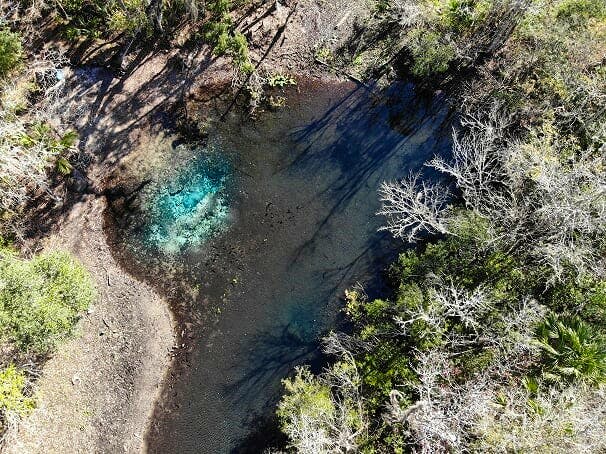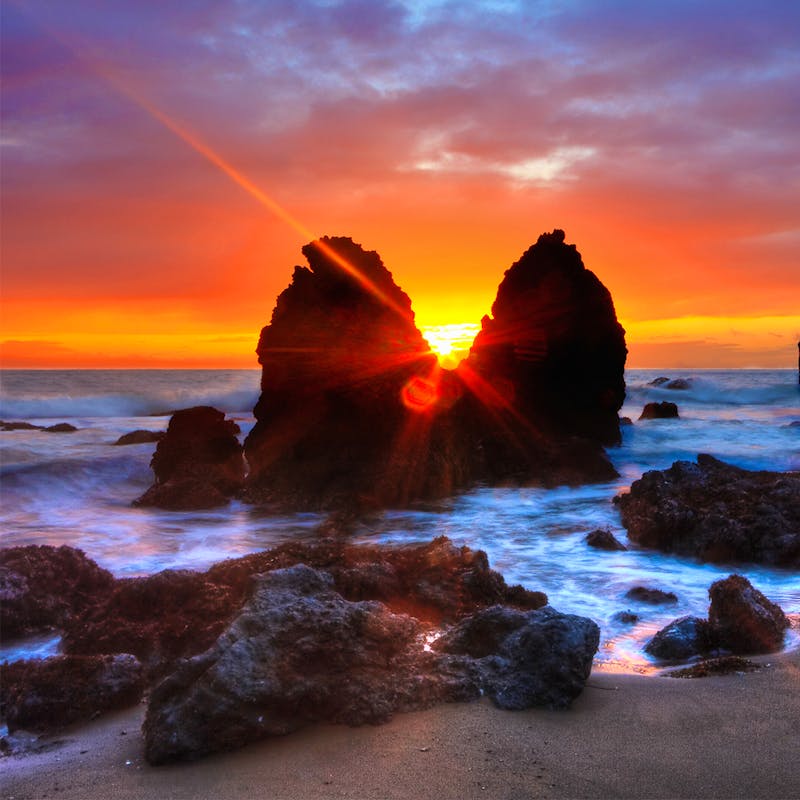November is Manatee Awareness Month, a time when these beloved and threatened “sea cows” migrate to warmer waters in Florida. While conservation efforts have helped the Florida manatee population grow to more than 8,000 animals, loss of their natural warm water winter habitat is the most critical long-term threat. Restoring the Great Florida Riverway, an important wildlife corridor, can help to ensure a bright future for these animals by providing access to riverine and spring habitat for hundreds of manatees.
For manatees, swimming to warmer water in winter is not just a vacation — it’s survival. And in November especially as these marine mammals make their way to warmer waters in Florida, boaters and others enjoying the water at this time of year are asked to keep an eye out to ensure that manatees arrive safely.
Despite their rotund appearance, manatees have little fat on their bodies, which leaves them vulnerable to a condition called cold stress that can kill them when water temperatures dip below 68 degrees Fahrenheit. This means warm water winter habitat is essential to the survival of these animals. But human development has destroyed or degraded many natural sources like rivers and springs. This problem is expected to worsen for manatees with expanded urban development and sea level rise from climate change likely reducing food supplies and available warm water habitat.
Over the past 50 years, manatees have learned to shelter at power plants and other industrial sites, and today 60% of manatees in Florida depend on power plant outfalls for warmth in the winter. This is an unsustainable situation, as facilities can experience outages and aging plants will likely shut down over the coming decades. Accordingly, Defenders is focusing on restoring and protecting natural warm water winter habitat, like the Great Florida Riverway, as a top conservation priority for the Florida manatee.
The Great Florida Riverway is a vast, 217-mile system of rivers and springs that flows north from the Green Swamp near Lake Apopka, is fed by Silver Springs and continues past Palatka to the Lower St. Johns River estuary on the Atlantic Ocean. The riverway is home to 50 springs: 25 at historic Silver Springs, 20 on the Ocklawaha River and five in the Harris Chain of Lakes. Like the Everglades to the south, the Great Florida Riverway is vital to the overall ecosystem health of North and Central Florida.
Unfortunately, manatees’ access to the potential habitat on the riverway is obstructed by a harmful and obsolete dam. Over 50 years ago, the Rodman/Kirkpatrick Dam was built as part of the misguided Cross Florida Barge Canal project, severing the Ocklawaha’s connection to the rest of the riverway. The dam flooded over 7,500 acres of forested wetlands, 20 springs and 16 miles of the Ocklawaha River. While about 100 individual manatees have been documented using this river system in recent years, the dam, its locks and related issues inhibit more manatees from accessing this habitat. The Ocklawaha’s freshwater springs are submerged by artificially high water levels caused by the dam, preventing their availability as warm water habitat in the winter.
Restoring the Great Florida Riverway by breaching the Rodman/Kirkpatrick Dam would provide access to essential natural warm water winter habitat for hundreds of manatees, including as many as 500 in Silver Springs. Other wildlife would benefit, as well: Migratory fish will return to a free-flowing river, and species like the Florida panther, Florida black bear, bald eagle, wild turkey and white-tailed deer will have new territory to roam within the habitat corridor between the Ocala and Osceola national forests.
To learn more about this exciting project for Florida’s wildlife, water quality and economy, tune into “The Great Florida Riverway Premiere,” which will be broadcast via livestream on December 2, 2020, through the Free the Ocklawaha River Facebook Page. Until then, celebrate Manatee Awareness Month by reading about Defenders’ advocacy to protect Florida’s state marine mammal, which you can support by symbolically protecting your very own manatee.











